El Transcantabrico for the Railfan

|
El Transcantabrico is
essentially a cruise which uses a train for its base. However,
the railway operating the train, FEVE, was very helpful in ansering my
more technical questions about the line and the way the railway is
operated.
 Motive Power for El transcantabrico.
Motive Power for El transcantabrico. Other
Passenger Trains on FEVE. Other
Passenger Trains on FEVE. Freight Trains. Freight Trains. El Berron diamonds and workshop. El Berron diamonds and workshop. Other
Other Bilbao Tramway.
Bilbao Tramway.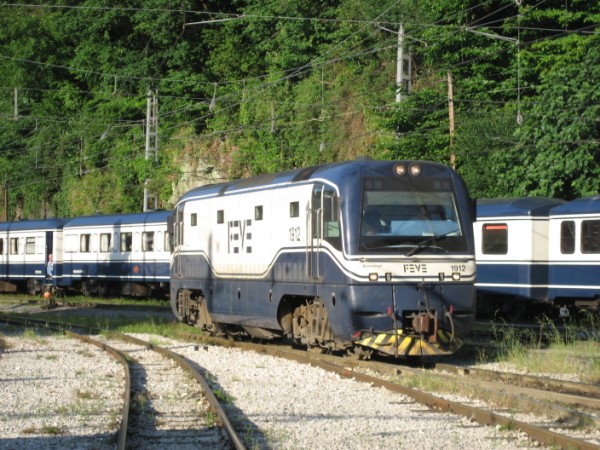 Diesel electric/electric No. 1912 coming off the train at Balmaseda which is the end of the Bilbao suburban electrified network. From El Ferrol to Bilbao and
as far as Balmaseda a diesel electric/electric hybrid locomotive was
used. This was able to operate in both non-electrified and
electrified territory. FEVE has about 20 of these locomotives
which were designed and built in their own shops around
2000-2004.
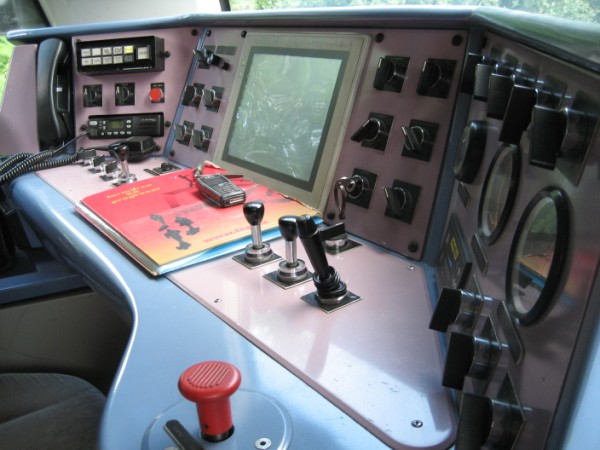 They are clean, quiet and
ride very well. the computer readout in the centre allows the
locomotive engineer to monitor all aspects of the operation of the
locomotive, including amperage to the traction motors and oil
temperatures. There are several different radio systems including
cell phones to allow the engineer to keep in touch and to update the
train crew manager as required. An event recorder (black box) is
included.
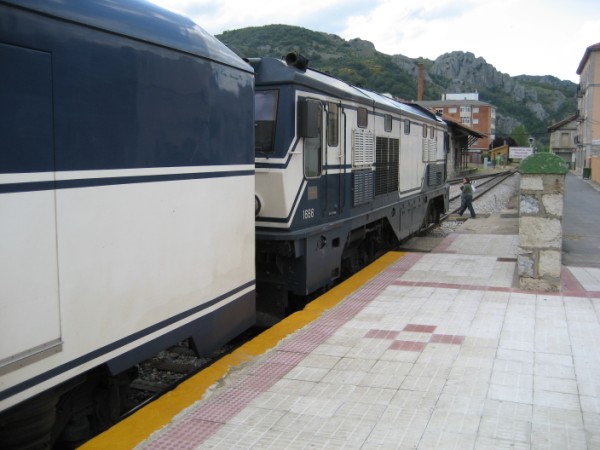 Diesel No. 1666 at Cisterna At Balmaseda a diesel
electric locomotive, No. 1666, was put on for the non-electrified
section from there to the end of the line at Leon.
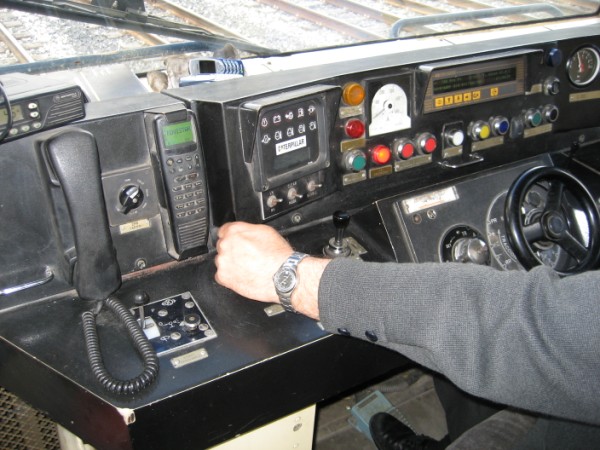 The diesel was noisier and
dirtier
than the hybrid but it rode quite well on the metre gauge track.
The wheel in the centre in front of the locomotive engineer is a
combined throttle and dynamic brake. Turn it clockwise for
throttle and counter clockwise for brake. Engineers tended to use
the dynamic brake because this saves wear and tear on the train braking
system, particularly brake shoes (blocks). Coming into Cisterna
the engineer was able to stop the train using dynamic brake only and
did not touch the air brake at all after leaving Guardo.
|

Other Passenger Trains on FEVE
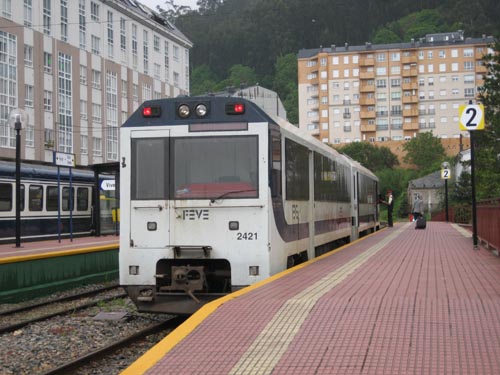 An eastbound diesel train at Viveiro |
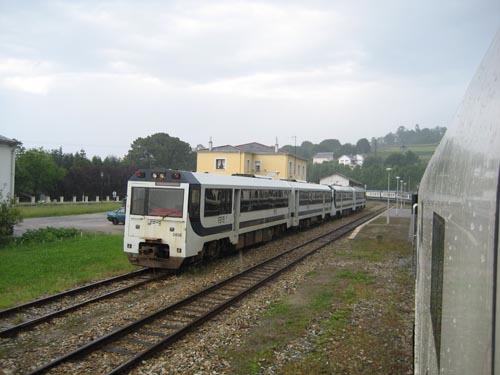 Meet with a westbound diesel train at Navia. |
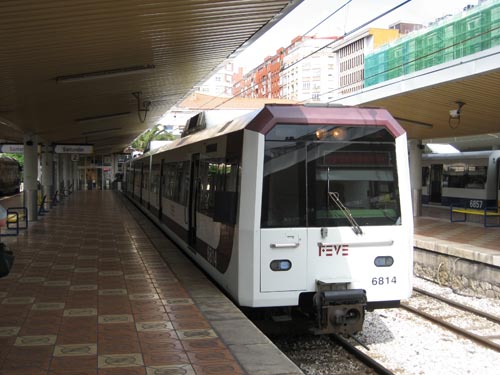 Santander |
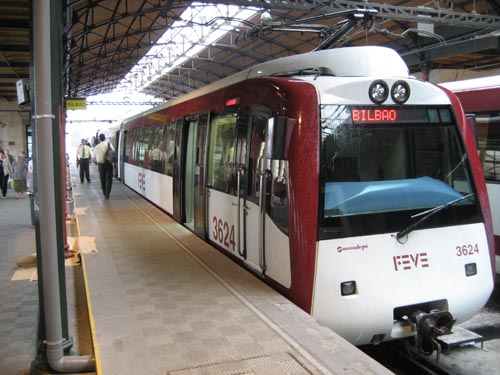 Bilbao |

Freight Trains on FEVE
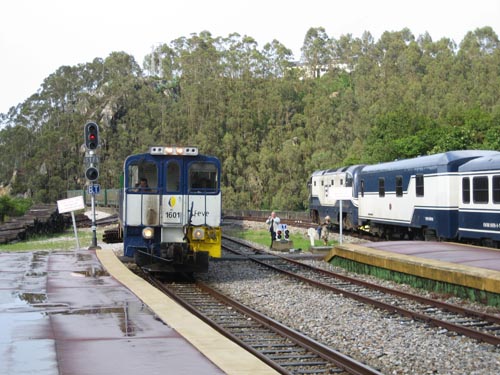 Westbound freight at Lurca. El Transcantabrico is in the platform at right. |
Luarca - the stationmaster or mistress inspects every train. |
At Arriondas a freight train was stoppedso that we could photograph it. El Transcantabrico is on the left. |
Arriondas |

A meet with a freight train.
Notice the black and white painted short piece of rail indicating the fouling point.

El Berron Diamonds and Workshop
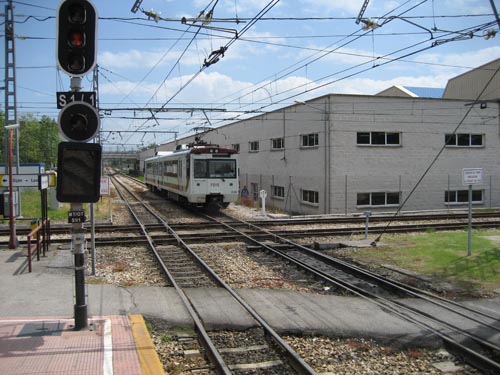 This is where the former Langreo standard
gauge north south line crossed the metre gauge lines. This
picture is taken looking east. There are connections in both
western quadrants and one is being built in the north east
quadrant. The FEVE workshops are in the south-east quadrant.
(right). An electric suburban train from Oviedo has just crossed
the diamonds.
|
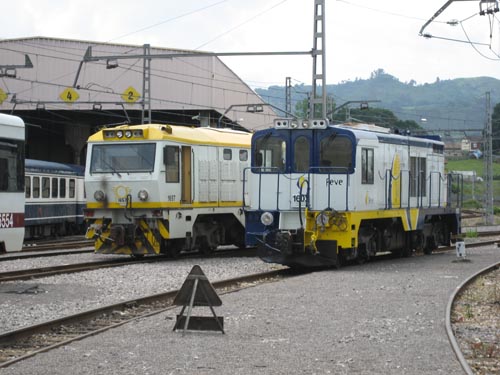 While most of the group visited Oviedo a
small number visited the FEVE workshops, close to the diamonds, where
El Transcantabrico (background) is serviced.
|
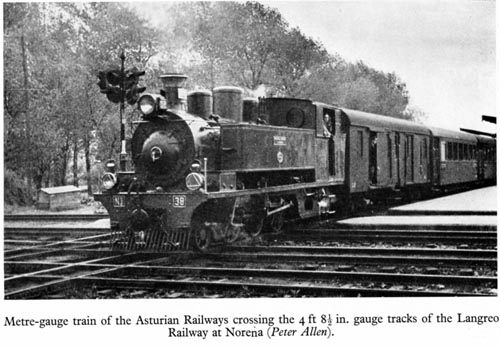 This fascinating picture is from "Steam on
the Sierra" by Peter Allen and Robert Wheeler published in 1960 and
long out of print. This would appear to be looking east, the same
as the photo above. The standard gauge line has been changed to
narrow gauge.
|
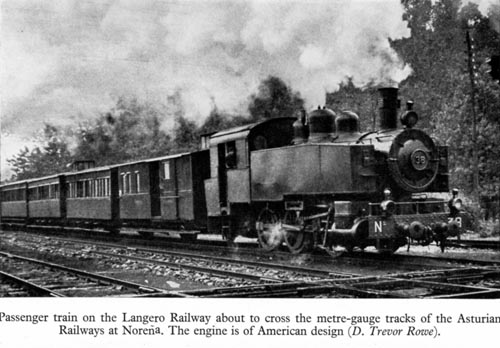 Another picture from "Steam on the Sierra"
showing a standard gauge train crossing the metre gauge. This is
likely looking north.
|
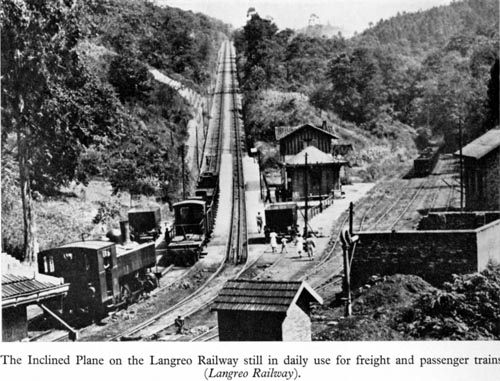 |
"Steam on the Sierra" shows an inclined
plane a few miles north of the diamonds. There is now a tunnel
which avoids the use of the plane. Trains now come out of the
tunnel on the location of the reception sidings shown to the right
(west) of the picture. The abandoned formation of the inclined
plane can still be seen from the train. Today, this is a metre
gauge electrified line with a frequent suburban service to Gijon. |
Guard locomotive fitted with an adapter coupler in the knuckle coupler to rescue electric trains - Balmaseda |
|
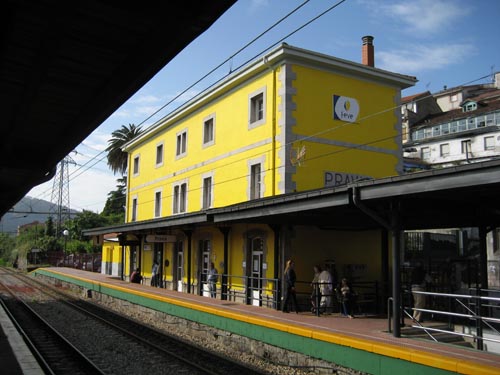 The FEVE station at Pravia is painted in the very distinctive yellow corporate house style. |
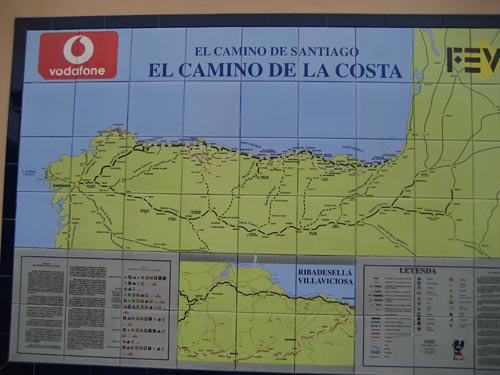 At many stations the railway map and details was shown in tilework. |
 Narrow gauge locomotive preserved at Bilbao FEVE station. |
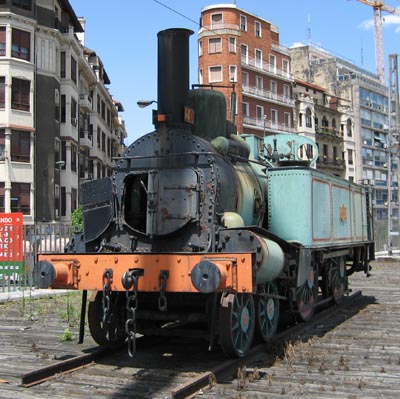 Beyer Peacock 4-4-0T preserved at RENFE Bilbao station. |
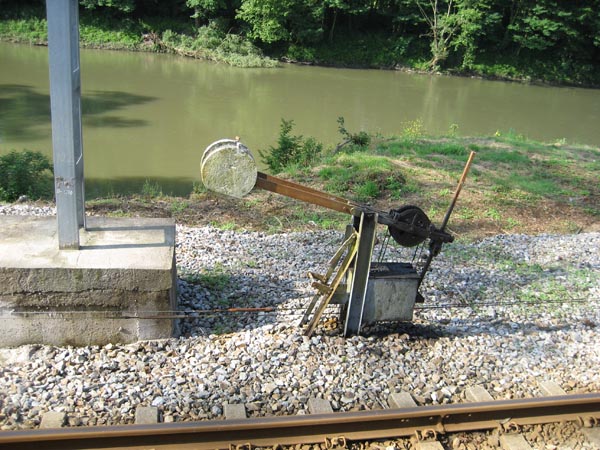

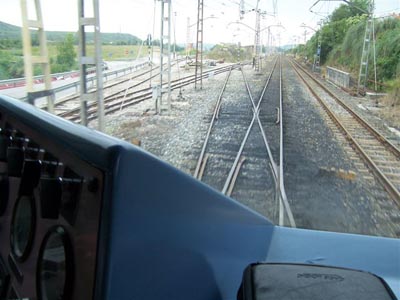
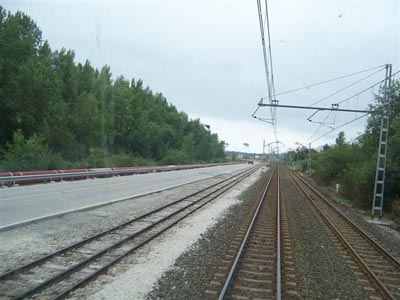
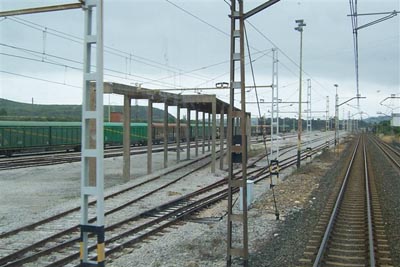
In the Santander area we saw examples of broad and dual gauge track including (top) a broad gauge diamond crossing with the narrow gauge.

Bilbao Tramway
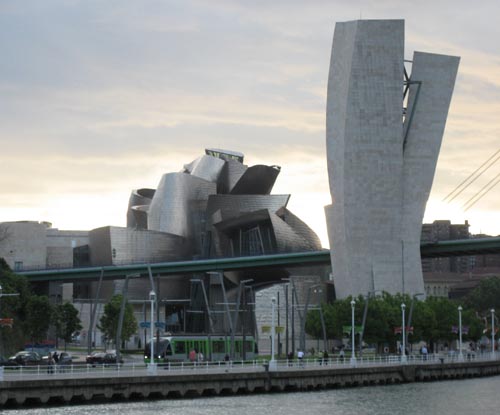
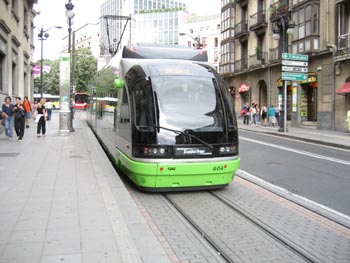 |
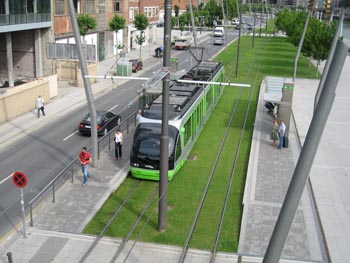 |
 |
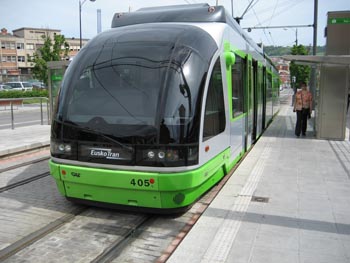 |
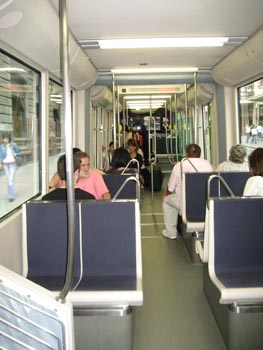
Passengers were enjoying Chopin Etudes and light orchestral classics.

Home El Transcantabrico